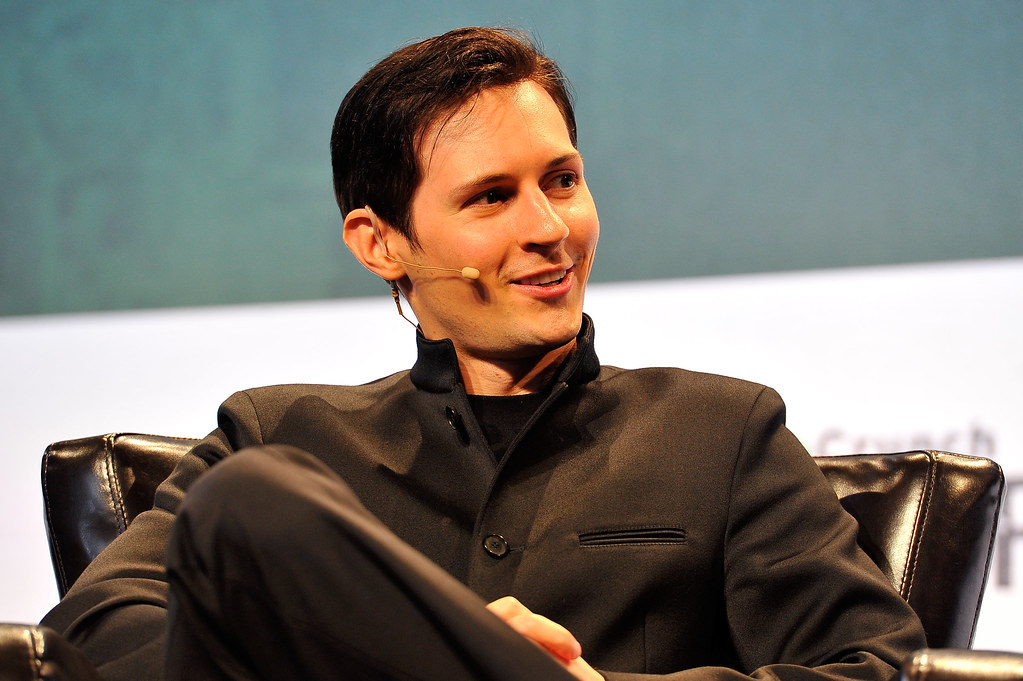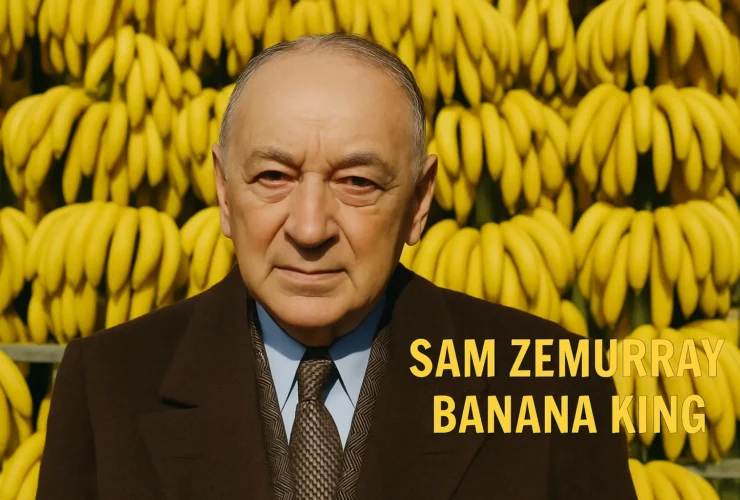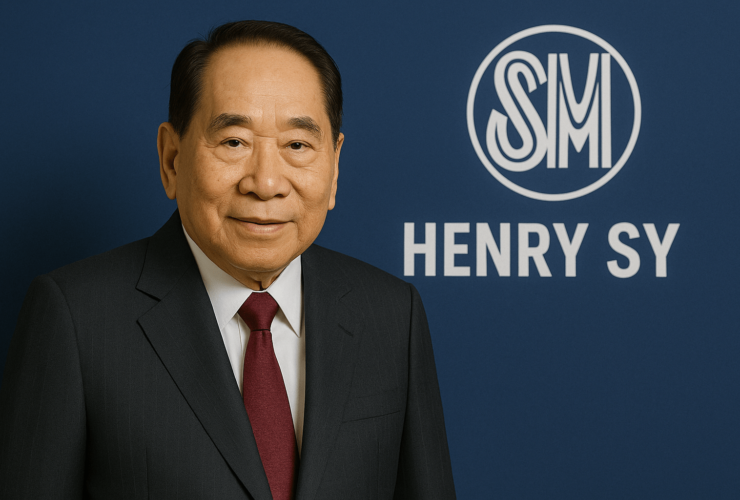Pavel Durov’s Telegram Success Story
Introduction
Ever wonder how some people turn simple ideas into billion-dollar empires? Pavel Durov’s journey is exactly that kind of tale – a story that takes us from coding in a bedroom to creating platforms used by hundreds of millions of people worldwide.
As someone who’s walked the startup path myself before becoming an angel investor, Durov’s story speaks to me on a personal level. His rise represents the perfect storm of technical brilliance, perfect timing, and bold decision-making in the face of intense pressure.
In this post, we’ll explore how this Russian entrepreneur built VKontakte (now VK) and later Telegram, becoming one of tech’s most fascinating and controversial figures. We’ll look at what made him successful and what lessons we can learn from his unconventional path.
What makes Durov special isn’t just his business success – it’s his unwavering commitment to principles of privacy and freedom of speech, even when they’ve cost him dearly.
Ready to dive into the story of the man sometimes called “Russia’s Mark Zuckerberg”? Let’s go!
Early Life and Background
Pavel Durov was born on October 10, 1984, in Leningrad (now St. Petersburg), Russia. His childhood wasn’t typical. His father was a professor of philology, creating an environment rich in intellectual curiosity.
When Pavel was four, his family moved to Turin, Italy, where he attended school before returning to Russia. This early international exposure shaped his global mindset.
What set young Pavel apart was his early fascination with programming. While most kids were playing outside, he was writing code. By his early teens, he was already creating programs and hacking school networks for fun.
His education took a formal turn at St. Petersburg State University, where he studied philology like his father. This unusual combination – deep technical skills paired with expertise in language and communication – would later prove incredibly valuable.
Pavel wasn’t just smart; he was different. Known for his rebellious streak and questioning authority, these traits would define both his greatest achievements and biggest challenges later in life.
His brother Nikolai, a brilliant mathematician and programmer, would become his essential partner in building both VK and Telegram.
The Birth of VKontakte
In 2006, when Facebook was still mostly used by American college students, Pavel spotted an opportunity. Russia needed its own social network designed specifically for Russian speakers.
Working from his university dorm room, Pavel and Nikolai created VKontakte (meaning “In Contact”). The timing was perfect – Russia’s internet scene was growing rapidly, but international platforms hadn’t yet captured the market.
VK wasn’t just a Facebook clone. Pavel designed it for speed and simplicity with features tailored to Russian users. It quickly gained traction among university students, then expanded nationwide.
Here’s a quick look at VK’s early growth:
| Year | VKontakte Users | Facebook Users in Russia | Key Development |
| 2007 | 3 million | Minimal presence | Initial launch |
| 2008 | 20 million | <1 million | Mobile version launched |
| 2009 | 45 million | 1-2 million | Music/video features added |
| 2010 | 100+ million | 5+ million | Became Russia’s top site |
The platform’s key advantages:
- ✓ Lightning-fast loading times
- ✓ Built-in music and video sharing
- ✓ Local language and cultural relevance
- ✓ Strong focus on photo sharing
- ✓ Integration with local payment systems
Pavel’s leadership style during this period was characterized by intense work ethic and attention to detail. Stories circulated about him sleeping under his desk during crunch times and personally responding to user feedback.
By 2011, VK was valued at over $1.5 billion, with Pavel owning a significant stake. At just 27, he had created Russia’s most popular website and amassed considerable personal wealth.
Conflicts with Russian Authorities
Success brought unwanted attention. As VK grew, it became a platform for political discussion and organizing – something increasingly problematic in Russia’s political climate.
In 2011, the Russian government requested that Pavel shut down opposition groups on VK during election protests. His response? A now-famous Instagram post of a dog sticking out its tongue.
This defiance marked the beginning of escalating tensions. Government agencies demanded user data and content removal. Pavel consistently refused, championing user privacy over government demands.
The situation came to a head in 2013 when authorities accused VK of enabling piracy and extremist content. Pressure mounted:
- Investors with government connections bought into the company
- Pavel’s apartment was raided by armed police
- His stake in the company was threatened
In a dramatic turn, Pavel sold his remaining shares in 2014 and left Russia. His parting statement: “The freedom of action of the CEO in managing the company has considerably decreased.”
This period revealed a core aspect of Durov’s character – his willingness to sacrifice business interests for principles. While many entrepreneurs talk about values, few face such direct tests of their convictions.
Exile and New Beginnings
After leaving Russia, Pavel embarked on a nomadic period. With his fortune intact (estimated at hundreds of millions), he traveled through various countries while planning his next move.
In 2013, before fully exiting VK, Pavel and Nikolai had launched Telegram, a messaging app with a focus on security and privacy. Initially a side project, it now became their primary focus.
Pavel invested $300 million of his personal fortune into Telegram – an enormous bet on his vision for secure communication. This move showed his comfort with risk and long-term thinking.
His approach to citizenship also reflected his independent mindset. Durov obtained citizenship in St. Kitts and Nevis through investment, and later became a citizen of the UAE and France, embracing a multinational identity unbound by traditional borders.
During this transition, Durov’s leadership philosophy evolved. No longer building a company for a single market, he was now creating a global platform with principles at its core.
Telegram’s Rise
When Telegram launched, the messaging app space seemed crowded with WhatsApp, Facebook Messenger, and others dominating. But Pavel saw a gap – none prioritized privacy and security as core features.
Telegram differentiated itself through:
- End-to-end encryption capabilities
- Self-destructing messages
- No ads or tracking
- Open API for developers
- Massive group capabilities (up to 200,000 members)
Growth was slow at first but accelerated dramatically after privacy concerns emerged about other platforms. Major jumps occurred whenever Facebook had privacy scandals or WhatsApp changed its terms of service.
The statistics tell the story:
- 2013: Launch
- 2014: 35 million users
- 2016: 100 million users
- 2018: 200 million users
- 2021: 500 million users
- 2023: Over 700 million monthly active users
Financial innovation became part of Telegram’s story in 2018 when Pavel announced plans for the Telegram Open Network (TON) and a cryptocurrency called Gram. The ICO raised an astounding $1.7 billion from investors.
However, the SEC filed an emergency action against Telegram in 2019, claiming the Gram token was an unregistered security. After a legal battle, Pavel abandoned the project in 2020, returning most investor funds.
This setback showcased another Durov trait – resilience. Rather than letting the failed crypto initiative derail Telegram, he refocused on the core platform and continued growing.
Business Philosophy and Leadership Style
Pavel’s approach to business breaks many conventional rules. Unlike most tech founders who chase growth at all costs, he has consistently prioritized user experience and privacy over monetization.
Key elements of Durov’s business philosophy include:
- Product-first thinking: Technical excellence and user experience trump marketing
- Privacy as principle: Not just a feature but a foundational value
- Long-term vision: Willing to forgo immediate profits for sustained growth
- Minimal corporate structure: Small, elite teams with high autonomy
- Resistance to investor pressure: Maintaining control to preserve vision
His leadership style is equally distinctive. Former employees describe him as brilliant but demanding – expecting excellence while giving teams freedom to solve problems their way.
Pavel keeps a small inner circle, with brother Nikolai serving as CTO and handling much of Telegram’s technical architecture. This tight-knit approach enables quick decision-making but has also led to criticism about transparency.
Perhaps most interesting is Durov’s approach to competition. Rather than obsessing over competitors, he focuses on solving fundamental problems. When asked about Facebook or WhatsApp, he typically redirects to discussions of privacy principles or technical challenges.
Challenges and Controversies
No entrepreneurial journey comes without controversy, and Durov’s path has seen many storms.
Telegram’s privacy features have made it popular with journalists, activists, and ordinary people seeking secure communication. However, these same features have attracted criticism for enabling illegal activities.
Multiple countries have attempted to block or regulate Telegram:
- Russia banned it in 2018 (though the ban was lifted in 2020)
- Iran has periodically blocked access
- China restricts access to the app
- The EU has raised concerns about extremist content
Pavel’s response to these challenges has been consistent: implementing just enough moderation to remove truly harmful content while preserving the platform’s core privacy features.
Another controversial area has been Telegram’s business model. For years, Pavel funded the platform largely from his personal fortune, refusing to implement ads or data collection. This led to questions about long-term sustainability.
In 2021, Pavel finally introduced a monetization strategy including premium features and non-intrusive ads in public channels – carefully designed to maintain privacy principles.
The TON blockchain project’s failure represented another significant setback. After investing enormous resources, the regulatory challenges proved insurmountable, forcing Pavel to reimburse investors and recalibrate.
Personal Growth and Evolution
Pavel’s personal evolution parallels his professional journey. The young, somewhat provocative entrepreneur who thumbed his nose at authority has matured into a more measured, thoughtful leader.
His physical transformation has been noteworthy too. Once described as somewhat nerdy, Pavel adopted an intense fitness regimen, transforming his appearance and promoting physical wellbeing alongside technical pursuits.
His communication style has similarly evolved. Early interviews show a blunt, sometimes combative approach. Recent appearances reveal a more diplomatic, nuanced communicator who makes his points firmly but with greater awareness of their impact.
What hasn’t changed is his intellectual curiosity. Pavel is known to be an avid reader across disciplines – philosophy, history, science, economics – applying concepts from diverse fields to his business challenges.
Friends describe him as intensely private yet deeply loyal. Despite his billions, he maintains relatively modest personal consumption while funding causes related to internet freedom and education.
Impact on Global Tech Landscape
Pavel’s influence extends far beyond his own companies. He represents an alternative model of tech entrepreneurship – one that places principles alongside profit.
In an industry dominated by ad-based revenue models that inherently compromise privacy, Telegram stands as proof that alternative approaches can succeed at scale.
His impact on the Russian tech ecosystem has been particularly profound. Despite his exit, he inspired a generation of Russian developers and entrepreneurs who saw that world-class products could emerge from the region.
Globally, Telegram has become essential infrastructure in many countries, particularly during political unrest when secure communication becomes vital. During protests in Belarus, Hong Kong, and Iran, Telegram played a crucial role in allowing coordination when other platforms were blocked or monitored.
Pavel’s stance on encryption and privacy has also influenced broader policy debates. As governments worldwide push for backdoors in encrypted communication, his persistent refusal to compromise has strengthened the position of privacy advocates.
Lessons for Entrepreneurs
Pavel’s journey offers valuable insights for aspiring founders:
- Timing matters: VK succeeded partly because Pavel recognized the opportunity for a local social network before global giants established dominance.
- Technical excellence creates moats: Both VK and Telegram gained traction because they were technically superior – faster, more efficient, more feature-rich.
- Clear principles simplify decisions: By establishing privacy as a non-negotiable value, Pavel avoided the constant recalculation that plagues many founders.
- Control equals freedom: Maintaining ownership and control allowed Pavel to make principled choices that outside investors might have overruled.
- Global thinking expands possibilities: By refusing to limit himself to a single market or country, Pavel created resilience against regional pressures.
- Patience beats short-termism: Pavel’s willingness to forego immediate revenue allowed Telegram to build an enormous user base before introducing monetization.
- Personal brand matters: Pavel’s public identity as a privacy advocate strengthens Telegram’s brand promise in ways advertising could never achieve.
The most powerful lesson may be about courage – the willingness to stand by principles even when they carry significant personal and financial costs.
TL;DR
Pavel Durov built two billion-dollar platforms – VK (Russia’s Facebook) and Telegram – through technical excellence and unwavering commitment to principles. His journey includes dramatic confrontations with the Russian government, exile from his homeland, and building Telegram into one of the world’s most popular messaging platforms with over 700 million users. Unlike many tech founders, Durov has consistently prioritized privacy and user experience over short-term profits, self-funding Telegram for years before introducing minimal monetization. His story demonstrates that entrepreneurs can succeed while maintaining their core values, even when facing immense pressure from governments and investors.
Q&A
Q: What made VKontakte different from Facebook in its early days? A: VK was faster, featured built-in music and video sharing from the start, and was designed specifically for Russian language and culture. These local adaptations helped it dominate the Russian market.
Q: Why did Pavel leave Russia? A: After repeatedly refusing government requests to shut down opposition groups and share user data, Pavel faced increasing pressure. When investors with government connections gained control of VK, he sold his shares and left the country to maintain his independence.
Q: How did Pavel fund Telegram for so many years without ads? A: Pavel invested approximately $300 million of his personal fortune from selling VK into developing and running Telegram. This self-funding allowed him to grow the platform without investor pressure or advertising revenue.
Q: What happened with Telegram’s cryptocurrency project? A: Telegram raised $1.7 billion for its TON blockchain and Gram cryptocurrency but faced legal challenges from the SEC, which classified Gram as an unregistered security. After a court battle, Pavel abandoned the project in 2020 and returned most investor funds.
Q: What is Pavel’s approach to government requests for user data? A: Pavel has consistently refused to provide user data to governments, even when facing bans or legal threats. Telegram publishes transparency reports but maintains that private communication remains private.
Entrepreneur Mindset Quiz: Do You Think Like Pavel Durov?
Answer these questions to see if you share the mindset that helped Pavel Durov build his tech empire:
1. When facing a difficult business decision, what’s most important to you? a) Making the most profitable choice b) Following your core principles even if costly c) Finding a compromise that satisfies all parties
2. How do you view competition in your market? a) I constantly monitor competitors’ moves and respond quickly b) I focus on solving fundamental problems regardless of what competitors do c) I try to form partnerships with potential competitors
3. If investors offered you significant funding but wanted to change your product’s core values, would you: a) Take the money and adjust your vision b) Decline the investment and maintain your approach c) Negotiate a middle ground
4. How important is maintaining control of your company to you? a) I’m happy to give up control for the right price b) I’ll do almost anything to maintain majority control c) I want significant influence but am open to shared control
5. Which approach to building a user base do you prefer? a) Grow quickly using aggressive marketing and monetize early b) Focus on product excellence, grow organically, monetize later c) Balance growth and monetization from the beginning
Answers:
- b) Following your core principles (Pavel repeatedly chose principles over profit)
- b) Focus on solving fundamental problems (Pavel rarely discusses competitors)
- b) Decline the investment (Pavel self-funded Telegram to maintain independence)
- b) Maintain majority control (Pavel’s loss of control at VK led to his departure)
- b) Focus on product excellence (Pavel built Telegram’s user base for years before monetizing)
Scoring:
- 4-5 answers match: You share Pavel’s principled, independent entrepreneurial mindset
- 2-3 answers match: You balance practical business concerns with some core principles
- 0-1 answers match: Your approach is more conventional and pragmatic than Pavel’s
Remember: There’s no single “right” approach to entrepreneurship. Pavel’s path worked for his specific circumstances and goals, but different situations may require different strategies.




